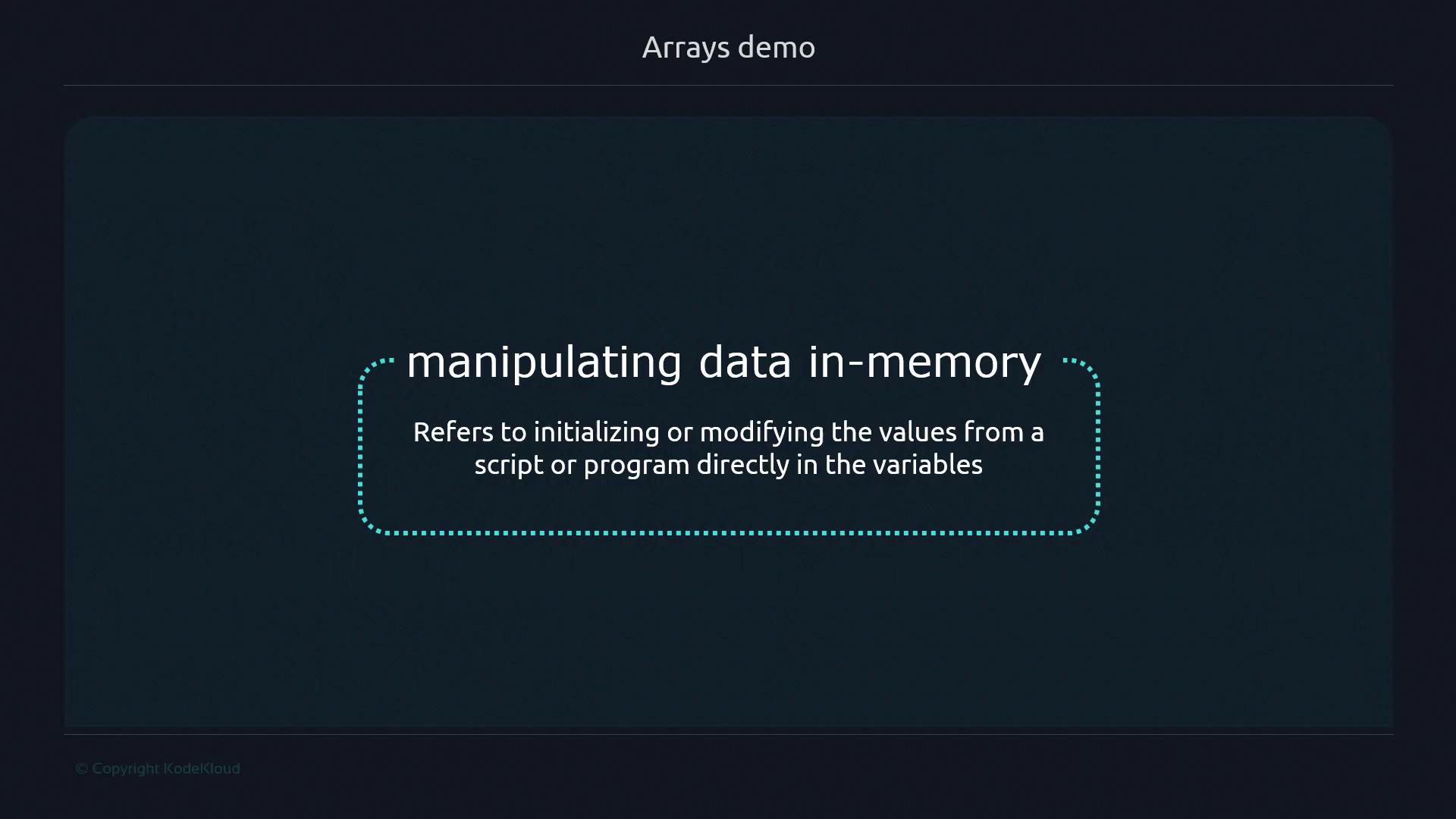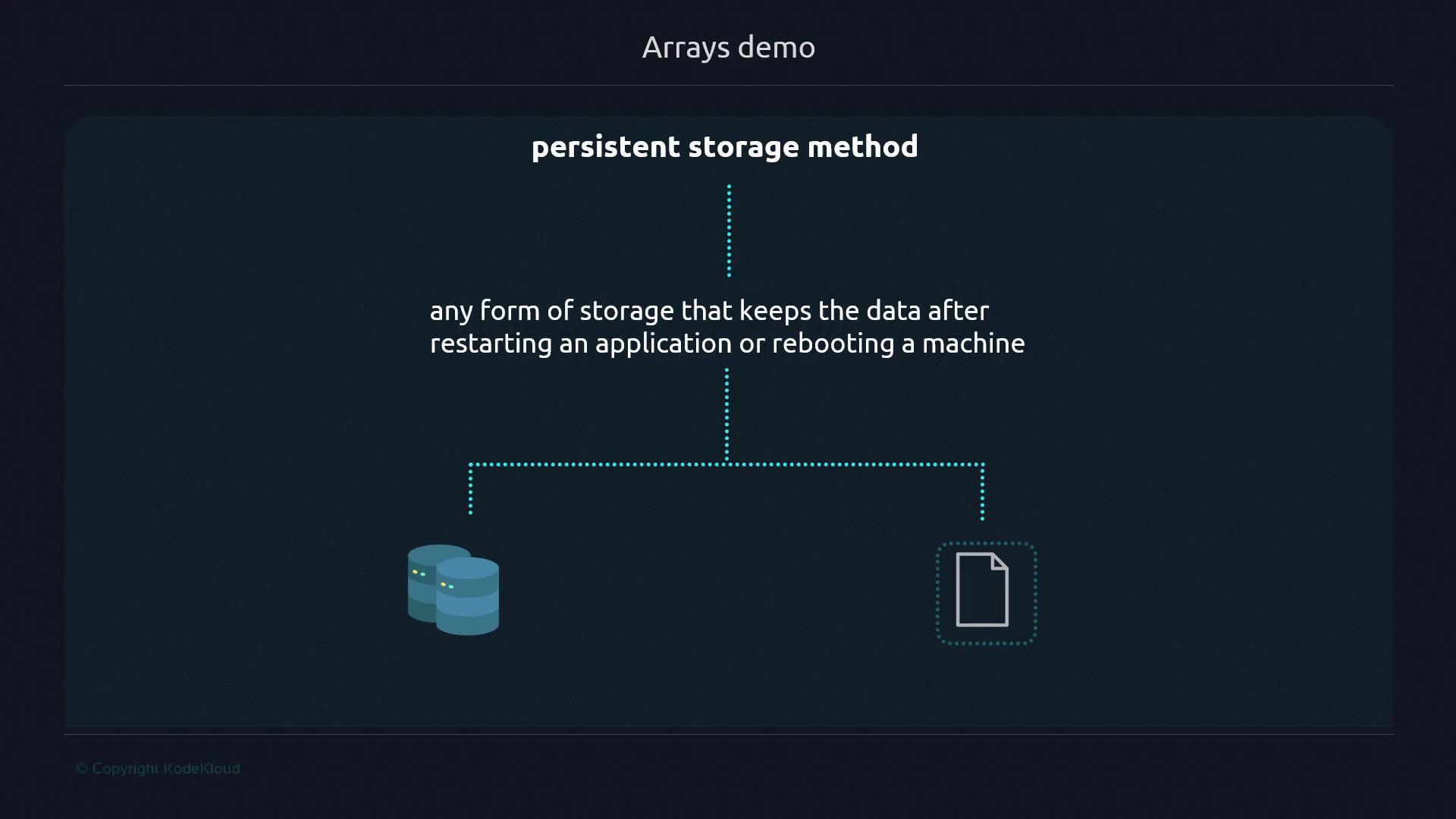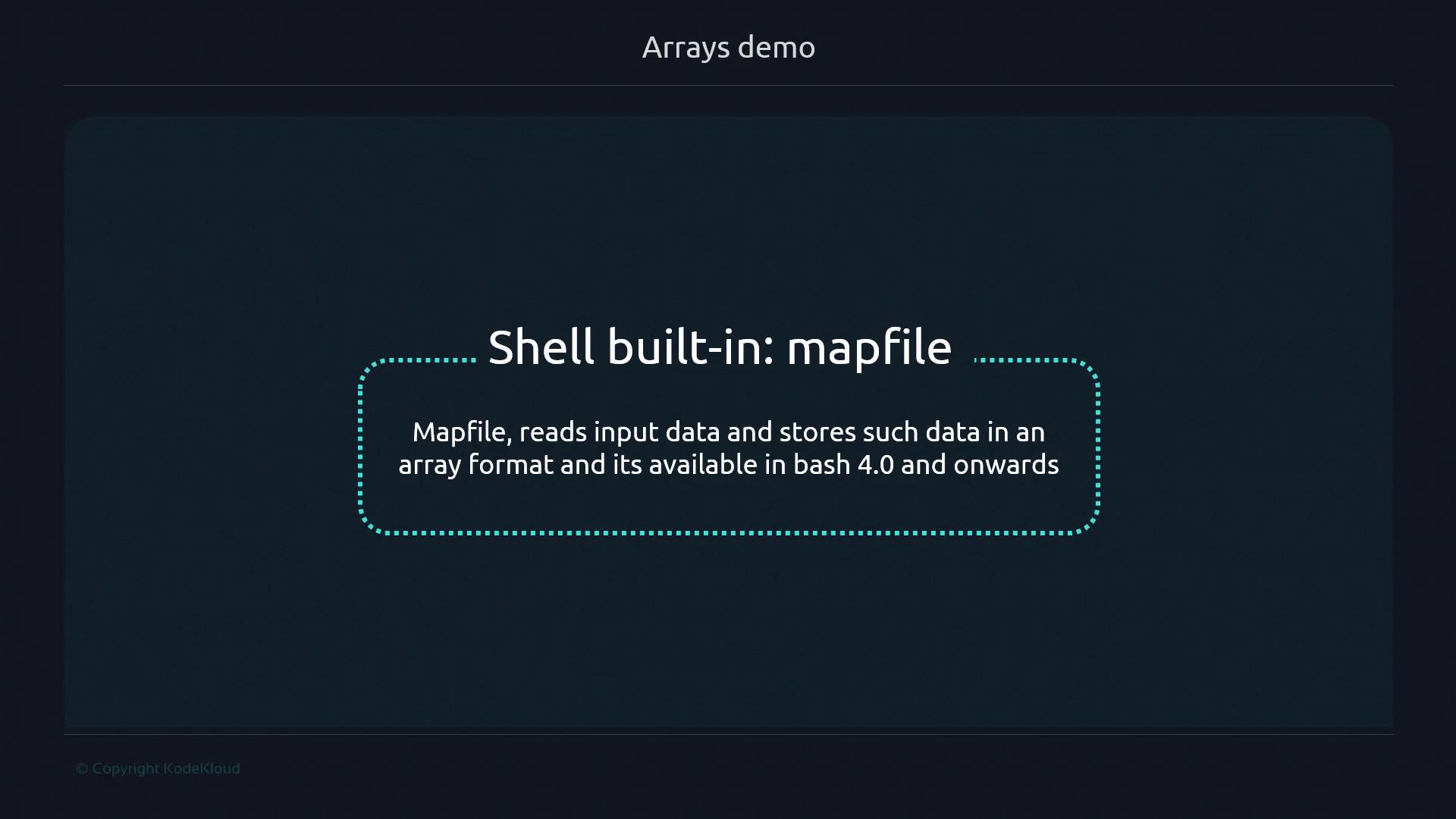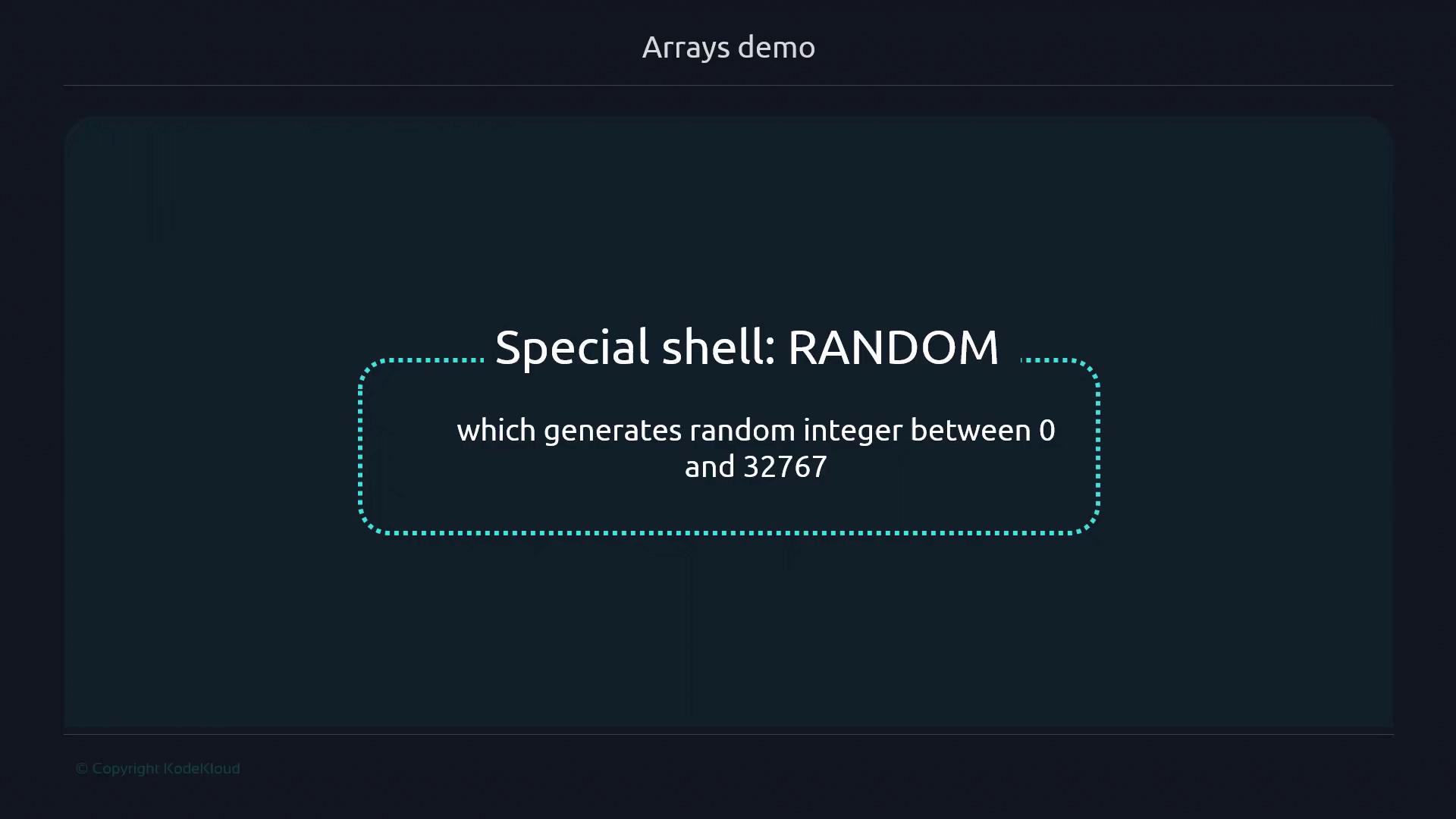Advanced Bash Scripting
Arrays
Arrays demo
In this tutorial, we’ll build a Bash script that picks a random lunch spot from a list—without repeats—by combining indexed arrays and simple file-based persistence. This pattern is perfect for one-time draws, rotating duties, or any scenario where you want to consume items until the list is exhausted.
Imagine a team of 20 colleagues who vote on their favorite restaurants each Friday. Everyone adds their go-to spot to an array. The script then:
- Reads the list into memory
- Selects a random entry
- Displays it
- Removes it from both memory and disk
- Exits with an error if the list is missing or empty
Why In-Memory vs Persistent Storage?
Manipulating data in memory means changes disappear once the script ends.

Persistent storage (files, databases) retains data between runs.

Note
This script uses Bash 4.0+ for the mapfile builtin.
Key Bash Features
mapfile -t: Loads lines from a file (or stdin) into an array.

$RANDOM: Yields a pseudo-random integer between 0 and 32767.

Exit Code Reference
| Exit Code | Condition |
|---|---|
150 (FILE_NOT_FOUND) | food_places.txt is missing |
180 (NO_OPTIONS_LEFT) | No entries remain in food_places.txt |
1. Prepare the Data File
Create food_places.txt with initial entries:
cat <<EOF > food_places.txt
Ramen
Sushi
Tacos
Dal makhani
EOF
2. Initialize the Script
Create lunch_selector.sh:
#!/usr/bin/env bash
declare -a lunch_options
# Determine script directory
work_dir=$(dirname "$(readlink -f "${0}")")
food_places="${work_dir}/food_places.txt"
# Exit codes
readonly FILE_NOT_FOUND=150
readonly NO_OPTIONS_LEFT=180
terminate() {
local msg="$1"
local code="${2:-$FILE_NOT_FOUND}"
echo "$msg" >&2
exit "$code"
}
# Guard clause
if [[ ! -f "$food_places" ]]; then
terminate "Error: food_places.txt file doesn't exist" "$FILE_NOT_FOUND"
fi
3. Load and Validate the Array
Populate lunch_options and ensure it’s not empty:
fillout_array() {
mapfile -t lunch_options < "$food_places"
if [[ ${#lunch_options[@]} -eq 0 ]]; then
terminate "Error: No food options left. Please add options to food_places.txt" "$NO_OPTIONS_LEFT"
fi
}
fillout_array
4. Select and Display a Random Option
Choose a random index, echo it, and remove from the in-memory list:
index=$(( RANDOM % ${#lunch_options[@]} ))
chosen="${lunch_options[$index]}"
echo "$chosen"
# Remove the selected element
unset 'lunch_options[index]'
5. Persist the Updated List
Write the remaining entries back to food_places.txt:
update_options() {
if [[ ${#lunch_options[@]} -eq 0 ]]; then
# Empty the file when no items remain
: > "$food_places"
else
printf "%s\n" "${lunch_options[@]}" > "$food_places"
fi
}
update_options
6. Complete Script
Here’s the full lunch_selector.sh. Don’t forget to make it executable:
#!/usr/bin/env bash
declare -a lunch_options
work_dir=$(dirname "$(readlink -f "${0}")")
food_places="${work_dir}/food_places.txt"
readonly FILE_NOT_FOUND=150
readonly NO_OPTIONS_LEFT=180
terminate() {
local msg="$1"
local code="${2:-$FILE_NOT_FOUND}"
echo "$msg" >&2
exit "$code"
}
if [[ ! -f "$food_places" ]]; then
terminate "Error: food_places.txt file doesn't exist" "$FILE_NOT_FOUND"
fi
fillout_array() {
mapfile -t lunch_options < "$food_places"
if [[ ${#lunch_options[@]} -eq 0 ]]; then
terminate "Error: No food options left. Please add options to food_places.txt" "$NO_OPTIONS_LEFT"
fi
}
fillout_array
index=$(( RANDOM % ${#lunch_options[@]} ))
chosen="${lunch_options[$index]}"
echo "$chosen"
unset 'lunch_options[index]'
update_options() {
if [[ ${#lunch_options[@]} -eq 0 ]]; then
: > "$food_places"
else
printf "%s\n" "${lunch_options[@]}" > "$food_places"
fi
}
update_options
Make it executable and run:
chmod +x lunch_selector.sh
./lunch_selector.sh
Each run prints a random, non-repeating lunch spot until the list is empty.
References
Watch Video
Watch video content
Practice Lab
Practice lab